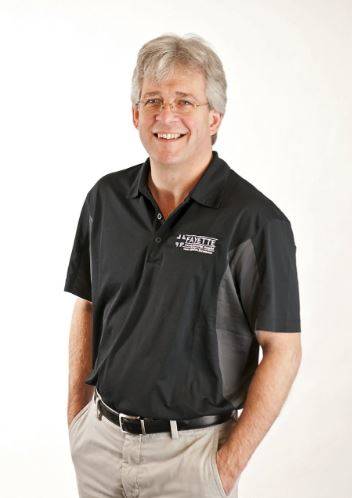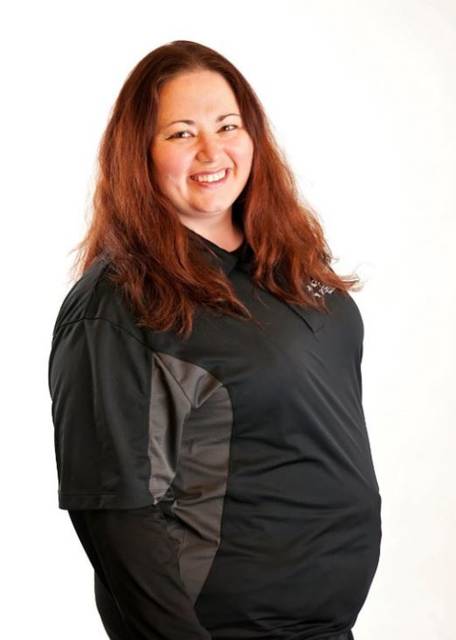

This content is sponsored by our partners at Fayette County Memorial Hospital.
The month of April is dedicated to raising awareness of many important health aspects. One aspect important to maintaining a healthy day-to-day life that doesn’t receive a lot of attention is occupational therapy.
The Record-Herald recently met the occupational therapy team at Fayette County Memorial Hospital to talk about what occupational therapy is and how it helps people in everyday life.
Annie Barns is an occupational therapist from Columbus who has a decade of experience working in the health field of occupational therapy. She described occupational therapy as being the skills for living.
“It’s the things that you do everyday. One of the biggest things we do and when that comes into play is when you’ve had a stroke. You still need to cook and clean but now you need to do it with one arm, and let’s teach you how to do that. Or maybe you’ve just had a hand injury and it’s pretty bad and you need to rehabilitate from that so you can get back to work. We will help you do that,” said Barns.
Barns said a lot of people assume occupational therapy is a part of vocational training, but she said it’s unrelated.
“While we do help to do things to help people get back to working, our main focus is getting you back to the things that are important to you, whatever that is, whether it’s school, taking care of your children, taking care of all of those life things you have to do, take care of a house, that type of thing,” said Barns.
Working in occupational therapy for seven years, James Colburn is another occupational therapy team member at Fayette County Memorial Hospital. He has seven years of experience working as an occupational therapy assistant.
“The role of occupational therapy is to promote health and wellness through everyday activities. What are everyday activities? You wash, you get in and out of bed, you use the toilet, you feed your pets, you take care of your kids, you work. Everything you do during the day is your daily occupation, hence, occupational therapy,” said Colburn.
The occupational therapists at Fayette County Memorial Hospital work with people along the whole spectrum of life from birth to death. They assist and help people who have injuries, developmental delays and chronic illnesses, and provide a wide range of specialized care to help people get back to their regular, normal everyday lives.
“For example with children, their primary occupation is school so maybe they’re having problems with handwriting so we might work on their handwriting skills or their fine motor skills, dressing, teaching themselves how to tie shoes and things like that for those kids who have developmental delays or other problems. For adult populations it can be, ‘I have a chronic illness but I still need to clean my house.’ So how do I teach you how to conserve your energy to do the things that you would like to do, and how do I teach you to do those things the most efficient way so that you can do them safely?” said Barns.
Sometimes that means giving people equipment and special tools and teaching them how to use that equipment to be able to do the things they need to do in their daily lives. The occupational therapists assess people’s strengths and look at what their daily lives entail and then help to develop plans that teach people how to take care of themselves while still remaining cautious and aware of their rehabilitation limitations. This helps people to get their strength and range of motion back, Barns said.
“Nobody is going to be home to help you, but you still have to put your socks on, here’s a way of doing that safely,” Barns said as another example.
Health care and occupational therapy are always changing, said Colburn. He said the occupational therapists pay attention to individual patients’ needs and at the same time they look at research and new techniques for helping to improve people’s lives.
Colburn gave another example of a patient that has had a stroke and has limited use of the right side of their body.
“They come to see us so we help them with ways to adapt to their stroke. We work with adaptive strategies with equipment and there’s many different ways to do that. What I do, as an occupational therapy assistant, is I would work with that patient to help them gain their strength and coordination back and work within their illness to be able to do their daily occupation. One way I try to look at it is, we’re not trying to fix the person, we’re not trying to fix the problem, but we’re working with them as they currently are to help them adapt,” Colburn said.



